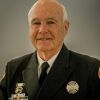My Fire Chief colleague, Billy Hayes, had a great article back in July examining which is more important for a successful officer — street smarts or book smarts, that is, training and experience or formal education.
While the article weighed the pros and cons of each, Billy concluded that both had their place in the preparation of a firefighter to become an officer or a chief officer whether in a volunteer, combination or career department.
The article made me think that street smarts and book smarts are performance-based criteria, what we might refer to as extrinsic examples of outward performance. This led me to think about the need for more intrinsic performance criteria, things directly related to leadership and character, such as honesty, patience, compassion, humility and integrity.
These also came to mind when the regular news headlines report that a fire chief was indicted for allegedly taking over $60,000 from his city, a chief under investigation for alleged sexual misconduct, or another chief officer suspended for allegedly being drunk while on duty.
How do these get overlooked in the learning process whereby we prepare firefighters to become officers and then chiefs? Or better yet, how are these evaluated during the vetting process for a new officer or chief? Is part of our responsibility to help build moral character, especially in those aspiring to become the next chief?
8 characteristics
A few years ago, Jim Loehr authored the book “The Only Way to Win — How Building Character Drives Higher Achievement and Greater Fulfillment in Business and Life.” In it, Loehr discusses how the pursuit of extrinsic performance — the better paying job, a bigger office, a more prestigious title — doesn’t necessarily equate to fulfillment of one’s life.
He concluded that first an individual must work at intrinsic core values, even construct a personal code of ethics to live by, before setting out on the extrinsic goals such as becoming an officer, a chief within a department or the chief of the department.
What are these core values? We’ve discussed some, but here is a more complete but not a comprehensive list.
- Honesty
- Integrity
- Gratitude
- Kindness
- Respectfulness
- Compassion
- Optimism
- Encouragement
- Courage
- Determination
We must make a commitment to have these characteristics guide our relationships in our family, our work and our community. They guide us through difficulties and can provide physical and mental stability, especially when we are facing completely new issues in our personal or professional life.
Developing character
Does any of this sound familiar? These core values are the same as those firefighters across the country say are the most important leadership characteristics when asked what they expect from their officers.
So, is it important for fire service leaders to not only encourage firefighters to be street and book smart, but also to develop leadership traits that will sustain them through their careers, no matter where that might take them?
The obvious answer is yes.
Character is important and therefore should be a criterion we look for in our officer candidates. So how do we teach character? The best answer is by example.
When you are the officer or the chief, everything you do or say is tucked away in the mind of each firefighter. That’s a universal given throughout the fire service. You are what you do and what you say.
If they see you abuse your time off, the use of your department car or credit card, your attendance at fire service conferences etc., they know you’ve compromised these values and could easily compromise them as well.
A year of resolve
Here is an example of how easily your character flaws can inadvertently become apparent.
My department had been working a fatal motor vehicle crash for several hours. First, as we handled the extrication, treated and transported multiple patients, and supported the police investigation.
We had exhausted both the fire and police vehicles of our supply of flares to warn oncoming motorists on a major highway to slow down before approaching the roadblock and detour. Both the fire and police passenger vehicles used the same master key on their locks and ignitions.
When the police chief and a field lieutenant arrived well into the investigation, I gave one of my officers my car keys and told him to get the flares out of both their cars.
The fire officer returned shaking his head and laughing. The only things in the trunk of both cars were golf clubs — no tactical vests, no police gear, just golf clubs. Needless to say that was passed around from firefighter to firefighter and spoke volumes to them on the use of these municipal vehicles.
Actions speak louder than words. Walk the walk before you talk the talk. An officer or chief must have leadership characteristics as guiding principles in work and life before the chief can pass them on to others by example.
Make a New Year’s resolution to write down one of these characteristic and make sure that you live by it for a month. Next month pick another characteristic and work on it as well.
By the end of 2016, you’ll have a better grasp on the character needed for leadership that will be noticeable to your firefighters and in turn be an example for them to emulate.













